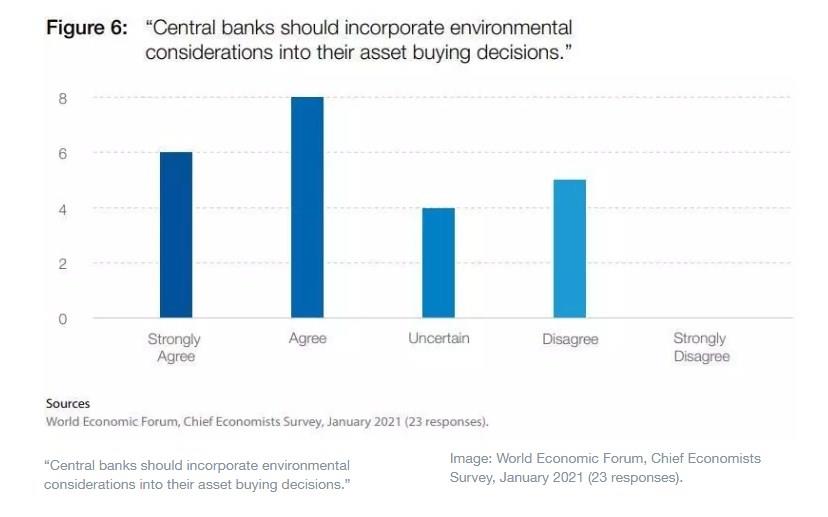by Sanda Ojiambo*
A good chief finance officer has always focused on what affects the bottom line. But where just a few years ago this would never have included sustainability, today it is a must. Not only are demands growing from all sides for companies to take more action to help secure a better future, but evidence increasingly shows that those who commit to sustainability targets outperform those that do not.
These days, investors actively seek out companies with strong environmental, social and governance (ESG) credentials. Vast amounts of money are going into ESG-labeled financial products and funds. Between 2014 and 2019, sustainable investing in developed countries rose 68% to reach $30.7 trillion in assets under management.
This is not a fad. Evidence points to a strong correlation between financial and ESG performance. Some of this can be attributed to savings achieved through reduced energy consumption, more efficient use of resources, and so on. But a strong ESG focus also allows companies to seize new business opportunities. Deloitte predicts that by 2030 organizations committing to sustainability in its broadest sense, embodied in the Sustainable Development Goals (SDGs), will have generated at least $12 trillion in savings and new revenues in four key areas energy, cities, food and health. CEO members of the Global Investors for Sustainable Development (GISD) Alliance, an initiative of the UN Secretary General that is supported by a number of UN system actors (including Global Compact), are collaborating to create financial tools and shape policy to move trillions of dollars of private investment towards sustainable development.
Better outcomes
Strong investor interest is one reason why CFOs should embrace sustainability. The second reason is access to cheaper capital. Creditors are now willing to lend at lower rates to companies that demonstrate progress in reducing CO2 emissions and water consumption, make a positive social impact, and generally meet other social and environmental goals.
Italian energy giant Enel, for example, launched a $1.5 billion five-year sustainability-linked bond in 2019. The interest rate is discounted by 20 basis points (bps), but rises by 25bps should the company miss its targets on installing renewable energy sources.
Some governments and regulators, such as the Monetary Authority of Singapore, are offering to subsidize the cost of issuing sustainability bonds to help the green financial sector develop and grow.
Such clear financial benefits have prompted companies as diverse as UK supermarket group Tesco, French luxury house Chanel and the Asian Infrastructure Investment Bank to issue sustainability bonds. In fact, growth is such that earlier this year, JP Morgan predicted the market for bonds linked to the issuer meeting certain environmental goals could reach $150 billion by the end of December, as businesses look to tap into booming demand.
Financial considerations such as these make a compelling case for the CFO to take a leading role in setting and aligning sustainability and financial targets. Many of the skills required to set, measure and report on sustainable targets, such as risk management and cost optimization and control, are already found within finance teams. By handing them the responsibility for sustainability, the two disciplines will reinforce each other to produce the best possible all-round outcomes – for companies and the planet.

Sharing ideas
The UN Global Compact’s CFO Taskforce, which was established in December 2019, has three main goals: to engage CFOs worldwide; to integrate SDGs into corporate strategy, financing and investor relations; and to create a broad, sustainable finance market.
Ultimately, we are working to broaden the role of CFOs so they become the architects of long-term value creation. But we need more to join us and have set a target of at least 1,000 members by 2023, from about 50 today.
We are already doing much-needed work to establish clear, universal standards for setting, measuring and reporting sustainability targets. This will help combat greenwashing and further the contributions of many to create a broad, liquid and efficient market for SDG investments and capital flows.
There is no doubt that the focus of business models is irrevocably shifting from being aimed squarely at shareholders and short-term financial expectations to far broader, more sustainable, and equally profitable alternatives. As this trend gathers pace, the role of the finance department will become ever more key. By joining our taskforce, CFOs have an opportunity to share and learn from their peers and to shape a sustainable future – not only for their companies but for all of us.
*Chief Executive Officer and Executive Director, United Nations Global Compact
**first published in: www.weforum.org




 By: N. Peter Kramer
By: N. Peter Kramer
